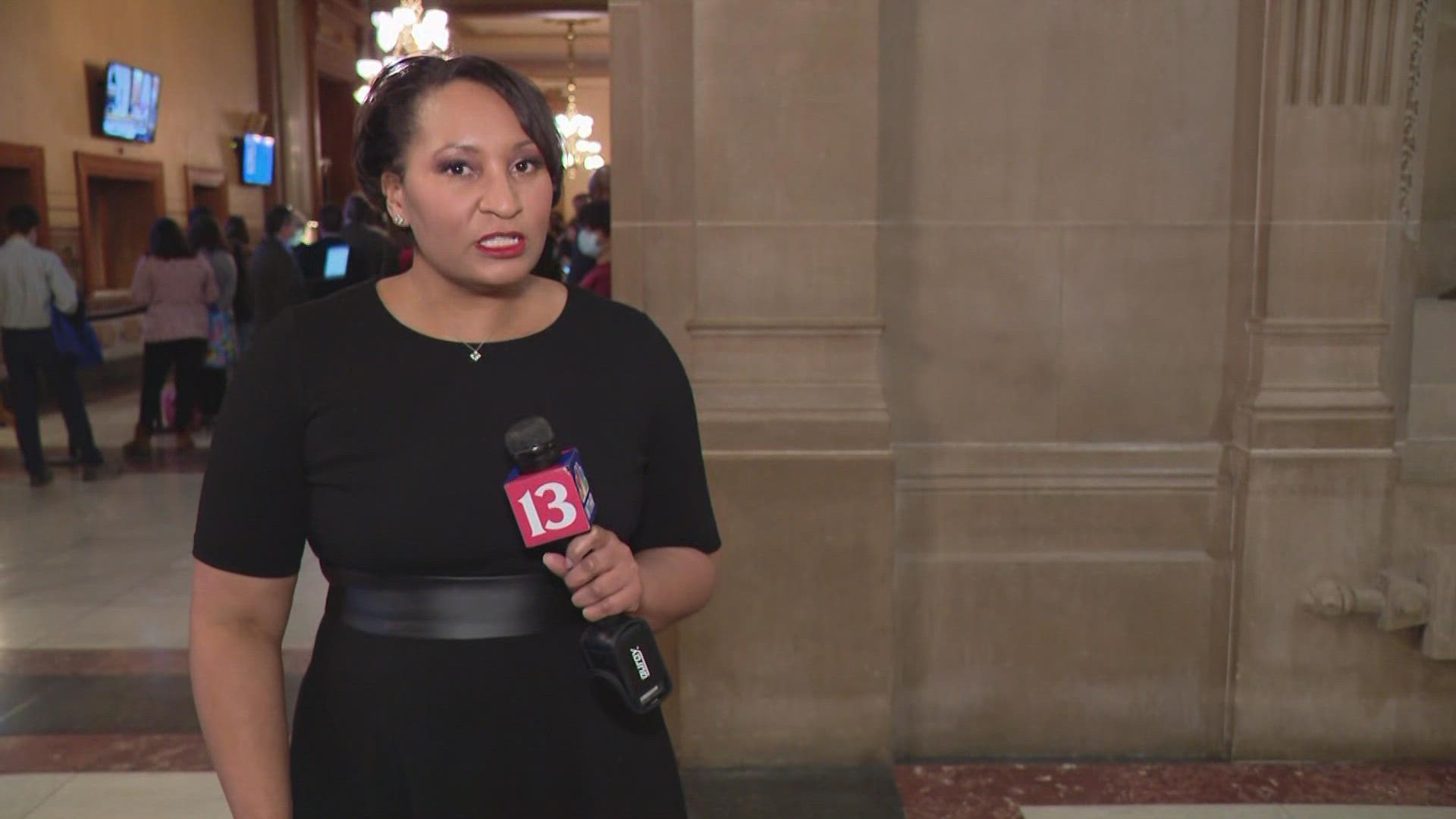INDIANAPOLIS — The sponsor of a controversial school bill wobbled on whether the bill would allow teachers to say slave owners, segregationists and supporters of Jim Crow laws were responsible for past racism in America.
More than 200 people signed up to speak on HB 1134. The majority wanted senators in the Education and Career Development Committee to vote against it.
State Sen. Linda Rogers (R-Granger) sponsored the bill and wrote Amendment 20 which lawmakers adopted ahead of testimony Wednesday night.
Rogers dubbed the updated version the “New HB 1134.” However, it still included similar concepts.
Including a section that prevents educators from teaching one sex, race, ethnicity, religion, color or national origin is "inherently superior or inferior" to another. It also would stop educators from saying one of those groups is "inherently responsible for actions committed in the past" by others of that same group.
The bill allows for the teaching of historical fact, but opponents worry lessons may not include context.
13News asked Rogers if a teacher can teach that American slavery was based in part on a belief that white people were superior and Black people were inferior.
“Of course, they can always teach what is in history,” she said. “So we all know what is in history, but they can't be blamed for what happened. But, we don't want to not let people know what happened in history and be able to teach factual events.”
To clarify we asked, “Can [teachers] blame the leaders of the past for what happened?”
“No, I don't believe you should,” Rogers said. “If somebody did something in the past that was wrong, you would, I guess I don't like to throw blame without knowing and having been there. I mean we can say that we don’t particularly like what happened in the past."
When asked if that also applied to supporters of Jim Crow laws and segregationists she said, “Well, you can maybe blame them, but you can't blame the people today."
The Senate killed SB 167 which was almost identical to HB 1134. It died after the bill’s author said he believed it would require teachers to remain neutral even when teaching about Naziism.
Rogers said she supported HB 1134 because she thinks it will help parents have more input in the education process. Her amendment allows for them to file a complaint, but no longer gives them the ability to sue.
Teachers also now won't have to upload materials before teaching in class.
Senators in the committee said they would hear testimony, but not vote on the bill as planned. The committee may bring up the bill for further discussion next week.
Supporters of HB 1134 said the goal is all about parental input, but critics at the Statehouse called the bill unnecessary.
"I know that parents already have the right to be on committees. They have the right to see instruction materials and sit on textbook adoption committees. I know there are procedures in place for grievances with whatever happens." said Dr. Gwendolyn Kelly.
In the proposed modifications, a section about "divisive concepts" was left in.
"The requirements around what teachers can or cannot teach implies that CRT is being taught. The act is it is not. This is a false narrative to justify bills like this one," said one critic.
"The best teachers I had in school, I really you couldn't tell if they were Republican or Democrat, conservative or liberal. They came into the view and gave you both sides to any topic you were discussing. I think that the vast majority of Hoosiers agree, that's really what we want in a teaching environment. Unfortunately, parents are seeing that's not what happens anymore. There is a one-sided view of controversial issues," said a supporter of the bill.
Despite the changes to the bill, critics said they're still concerned, calling it an act of censorship intended to reduce meaningful conversation.
"What are you going to take out? 1+1=2 or slavery? In my opinion, you just can't take out something because you don't like it," said a critic who spoke.
"My grandchildren need to receive a more complete understanding of history than I received. We need to make room for meaningful conversations surrounding race. Not limit those conversations," said an opponent of the bill.

